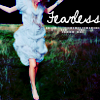Postmodernism, as defined by McDougall, cannot truely be defined, and therefore leaves us with no specific definition of the movement. Instead he cites of examples and conventions which fit into the Postmodern genre of media, such as Films, including 'the Matrix' and 'Bladerunner', locations such as 'Disneyworld' (and the idea of Utopia, Dystopia and the 'Hyperreal' world), along with television shows like 'The Office' or 'Extras'. Stating that 'Postmodernists claim that' we are 'in a media-saturated world', where 'we no longer have any sense of the different between real things and images of them, or real experiences and simulations of them.' This view is emphasised by Postmodern Theorist Baudrillard who states rather rationally that 'the Gulf War never happened', as well as the events of 9/11 for the simple reason that what the majority of the people see when they think of those events are the images which were shown to the audience through television not the actual events; hence the use of the term 'mediated' as that's exactly what it was.
Lyotard, another theorist states that 'the idea of truth needs to be deconstructed so that we can challenge dominant ideas that people claim as truth', this forms the basis of a 'grand narrative. Yet, the idea of a lack of distinction between reality and the media is reflected in Disneyworld, in which the magical world of Disney is almost recreated; with castles, shows, characters and houses scattered around for one to visit. This is known as 'Simulacrum'. One example of a 'Simulacrum' in a specific media text is within the film 'Bladerunner' with its 'postmodern Aesthetic, mixing textual references and images' this intertextuality makes up one of the many elements of a Postmodernist text. Displaying a Dystopian life in Los Angeles where most people have become virtualised simply shows a hyperreal and sumulacra-based society. It is also an achronisitic text which plays about with time, or the lack of time within the movie. Also the use of binary opposites defines the postmodern themes through the 'modern' - such as human vs machine, life vs death. etc.
Many directors like Michael Winterbottom and the Coenn Brothers have been criticised for being too postmodern. With their 'fictionalised' versions of real life, and the 'docudrama' genre of film by Winterbottom, and the evident breaking of the fourth wall, we can see a fragmentation of reality, or the representation of a media text. Also playing with the elements of Irony and 'pure reality collates together a set of post modern texts such as 'The Hudsuker Proxy' or 'Fargo'.
Television is also exploited to create a postmodern sense of medium. Doctor Who and Torchwood, both produced by the BBC include typical traits; through their representation of the T.A.R.D.I.S and its effect of bringing a nostalgic yet futuristic appearance shows also subverts typical sci-fi fiction. Also Intertextual references are constant, as well as 'intertextual' appearances from the show-spin offs, over-arching plot arcs and references to things in today's society are some of the things we show Doctor Who as postmodern. The Mighty Boosh uses a technique known as 'Bricolage' through remixing old formulae’s such as stereotypes, misconceptions of society, and values of a television show. Its even a hybrid of genres, intertextual and eclectic. Finally shows such as 'Extra's represent a celebrity lifestyle, and in the Christmas special, Gervais announces to the world through 'Big Brother' all about celebrities and how they are different, and how television exploits them. This in itself is significant as it shows 'Decontextualisation' and more importantly self-referential.
Magazines are yet another platform which continue Postmodern themes with how they encourage the representation of the target audience -for example how it represents its and the opposite gender, and how to represent the other gender to the reader. It also introduces a 'secondary reader', as explained by Dougalll like a gay male reader reading Elle. This creates an identity which is fluid, gender and sexuality as performative. In other words active.
Even video games are post modern, as emphasised by Dougalll. Grand Theft Auto immerses us into a world where we can get away with anything and defy the laws of our governments, and do things we could never do in reality. We also learn of MMRPG's such as world of warcraft, which does similar things, taking us into a feeling of being lost in the gameworld, leading us to a enhanced state of Happy Hyper reality through Flow and Immersion - A state where the game gets more difficult as we progress, but also more achievable and pleasurable. The immersion is then the pleasurable loss of reality. Metalanguage therefore comes into play as we became to articulate ourselves as the avatar in the game. This creates an argument between 'Ludology', the difference between a novel reader and a game player, and the 'Narratology' where recognise the plots and characters from the canon.
Tuesday, 26 January 2010
Subscribe to:
Post Comments (Atom)

No comments:
Post a Comment